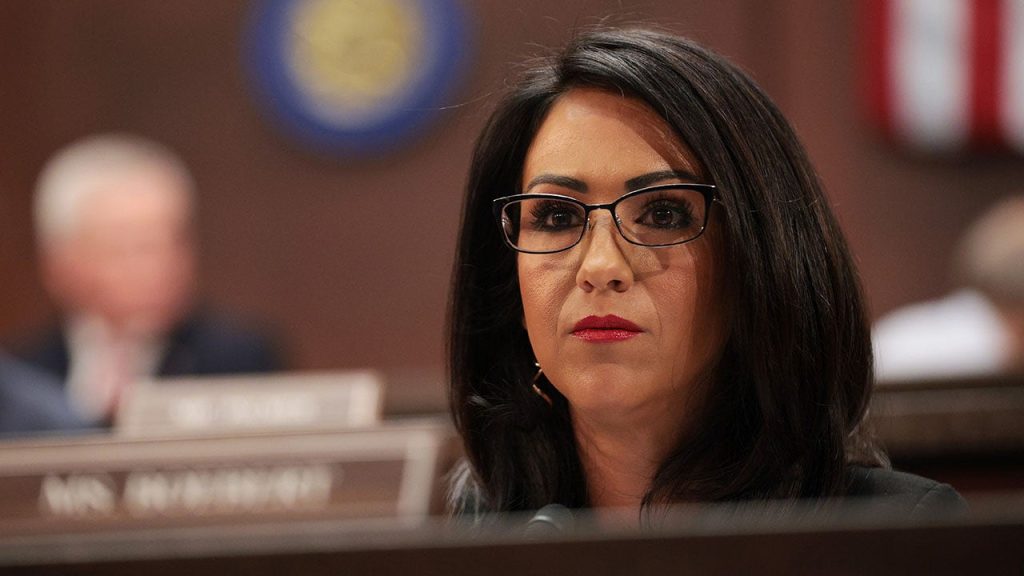In a developing political situation, Rep. Chrissy Houlahan from Pennsylvania is seeking to censure fellow Representative Lauren Boebert from Colorado due to remarks made about Rep. Al Green of Texas during a recent media interview. The controversy emerges following an incident during President Donald Trump’s address to Congress, where Green was called out for his behavior, which included heckling the president. Houlahan’s resolution cites Boebert’s comments as derogatory and potentially racist, sparking ongoing debates within the House regarding conduct and decorum among members.
| Article Subheadings |
|---|
| 1) Overview of the Censure Motion |
| 2) Incident During Trump’s Address |
| 3) Houlahan’s Response and Motivation |
| 4) Reactions and Backlash Within Congress |
| 5) Implications for Congressional Conduct |
Overview of the Censure Motion
Rep. Chrissy Houlahan officially introduced a resolution on Monday to censure Rep. Lauren Boebert for her disparaging remarks about Rep. Al Green. Houlahan described Boebert’s comments as not just derogatory but also as racially charged, arguing that such language violates the decorum expected within the U.S. House of Representatives. The resolution demands that Boebert present herself before the House for public censure, as a means to address what Houlahan claims is a breach of conduct rules among its members. This resolution is aimed not only at accountability for individual behavior but also at setting a precedent for how members treat one another while in office.
Incident During Trump’s Address
The controversy erupted during President Donald Trump’s recent address to Congress on March 4, 2025. During this session, Rep. Al Green openly heckled Trump, challenging his assertion of a “mandate” from voters and vocally opposing proposed cuts to Medicaid. His outburst, which included waving a cane at the president, prompted intervention from House Speaker Mike Johnson, who had Green escorted from the chamber. This incident highlighted the growing tensions within Congress, particularly around the appropriateness of behavior exhibited by politicians during formal proceedings, marking a significant moment where decorum was called into question.
Houlahan’s Response and Motivation
Following the incident, Houlahan’s motivation to draft the censure resulted from a conversation on the House floor where she expressed her belief that behaviors evincing a lack of respect had gone unchecked for too long. In her resolution, she criticized what she deemed a double standard regarding accountability among members of Congress, specifically calling out Boebert’s language as representative of a deeper issue within political discourse. Houlahan addressed the specifics of Boebert’s interview, in which she characterized Green’s conduct as “abhorrent” and questioned his dignity as a member of Congress. Houlahan argued that such remarks do not contribute to constructive dialogue but rather serve to deepen divides and perpetuate hostility.
Reactions and Backlash Within Congress
The introduction of Houlahan’s resolution ignited a firestorm of reactions among both Democrats and Republicans. Critics of Houlahan within her own party argue that the move distracts from more pressing legislative issues and instead indulges in what some term “petty politics.” Supporters, however, echo Houlahan’s assertion that maintaining decorum and respect within the chamber is essential for effective governance. Following the vote on the resolution, Houlahan indicated that the decision to support censure was not taken lightly and acknowledged the anger it incited. Additionally, many members reflected on the conflicting behaviors exhibited in recent parliamentary sessions, raising questions about whether similar infractions would also receive appropriate censure.
Implications for Congressional Conduct
The ongoing discourse surrounding Boebert’s comments and the subsequent censure motion serves as a critical case study on conduct and accountability within Congress. Not only does it highlight the need for consistency in enforcing rules regarding behavior and language, but it also addresses the broader implications of how partisan disagreements can escalate into personal attacks. As members grapple with these issues, the potential for ongoing conflict remains high, particularly as each party navigates its internal divisions regarding decorum and respect. These developments could influence future legislative sessions, as stricter adherence to rules of conduct may be demanded to create an atmosphere conducive to bipartisan cooperation.
| No. | Key Points |
|---|---|
| 1 | Rep. Chrissy Houlahan introduced a resolution to censure Rep. Lauren Boebert over derogatory comments about Rep. Al Green. |
| 2 | The controversy centers on Green’s heckling of President Trump during a joint session of Congress. |
| 3 | Houlahan cited a need for accountability and decorum among members of Congress in her resolution. |
| 4 | The resolution has sparked backlash and discussions about discipline within the House. |
| 5 | The incident highlights the tension and contention in political discourse in the current Congress. |
Summary
The motion to censure Rep. Lauren Boebert for her remarks regarding Rep. Al Green reflects a larger discourse about the standards of conduct expected in Congress. As political tensions rise, the importance of maintaining decorum and respect becomes increasingly significant. This situation underscores how personal attacks and partisan battles can derail productive governance, highlighting the challenge lawmakers face in fostering a collaborative environment amidst deep divisions.
Frequently Asked Questions
Question: What led to the censure motion against Rep. Boebert?
The censure motion against Rep. Lauren Boebert arose from her derogatory comments about Rep. Al Green during a television interview, where she criticized his conduct during President Trump’s address to Congress.
Question: What were Rep. Green’s actions during the president’s address?
Rep. Al Green heckled President Trump, challenging his statements about having a mandate from voters and displayed disruptive behavior, which led to him being escorted from the House chamber.
Question: How did Houlahan justify her decision to support the censure?
Rep. Houlahan justified her support for the censure by emphasizing the need for decorum and accountability among members of Congress, arguing that Boebert’s comments breached conduct expectations in the House.


